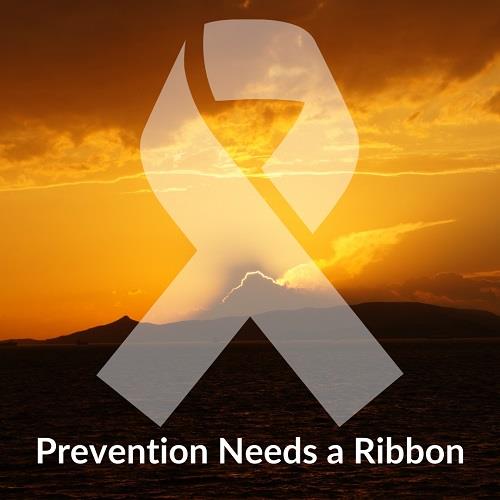Prevention needs a ribbon. An ounce of prevention appears to not be heavy enough for many people with too many waiting to act until they need to carry several pounds of cure.
As detailed in the previous post, there are 18 lifestyle factors connected to Alzheimer’s. Even though never getting a disease is always better than “defeating” it, avoiding illness does not give us an “enemy” to “attack,” is not as dramatic and moving, and does not have its own special colored ribbon. It is why we have “war movies” not “peace movies.” Where there is avoidance of conflict there is no drama, and we humans are irresistibly drawn to drama.
And when it comes to our health, we suffer for it. We often wait until we get a disease and then fight it with everything we’ve got. A more sensible path would be to prevent it with everything we’ve got. For too many people it seems that “an ounce of prevention” is not a heavy enough burden. We are idle until a major disease strikes and then fight it with a massive effort and carry many pounds of cure.
Part of this is because too often health behaviors are perceived as boring or unenjoyable at best and outright unpleasant at worst.
We remember the emotional components of an experience far more powerfully than the factual ones. And a single negative experience makes a bigger impression than a single positive one. This bias towards negativity is part of what helped advance the human species as it made us hyper-aware of potential threats to survival. (Remembering which berries are fatally poisonous is far more important than remembering which ones are delicious and nutritious.)
When it comes to exercise, many people approach it like they are auditioning for the part of a victim in a horror movie. Something scares you into action, and you run panicked and screaming into the woods to get away from the killer. We know what happens next. Running one way at top speed through uncertain terrain while looking back at the awfulness chasing you is a guarantee of a trip and fall. A health scare or other negative motivator might get you started but failing to adjust perspective toward something positive rather than away from something negative almost always results in unfavorable outcomes with exercise.
Humans make most decisions based on emotion. We have a rational side for sure, but the majority of what we do and why we do it is connected to something with high emotional value. For many people, their emotional response to exercise is negative for a myriad of reasons. This makes it a continual struggle unless we make it feel different.
Prevention too often focuses on future outcomes when the reality is that the multitude of health behaviors that improve future health odds also make today better. All we need to do is focus on how to make today a little better, a little bit healthier, and just take a small positive step or two. And then repeat that small shift day after day.

